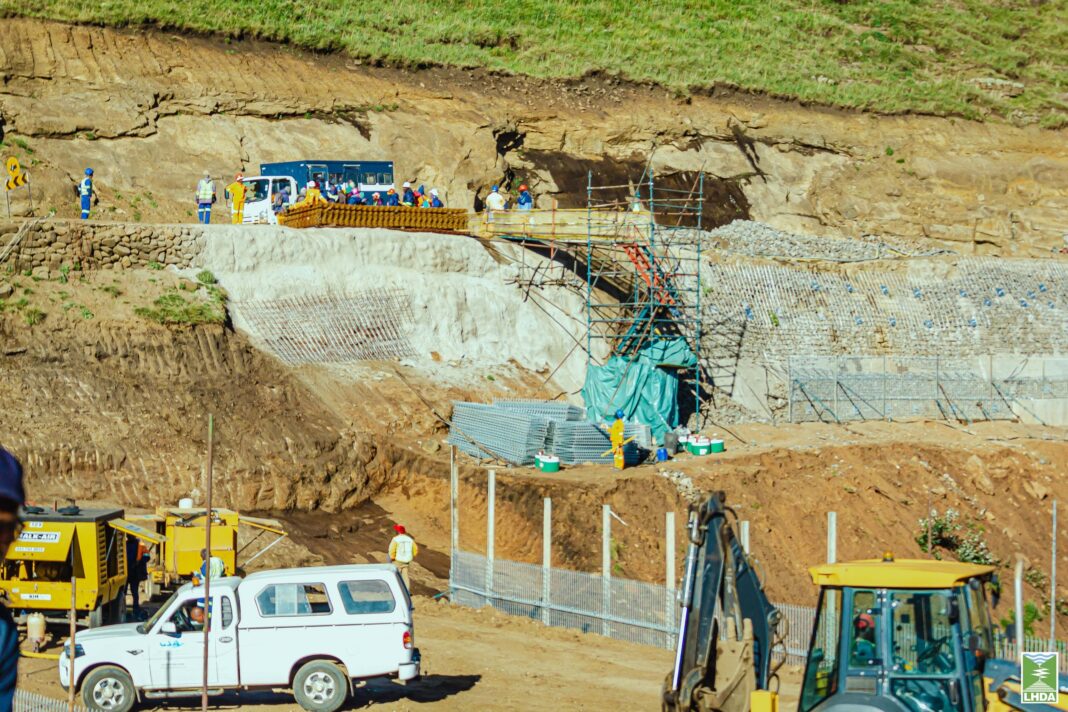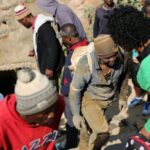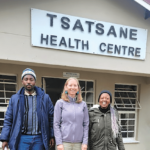Staff Reporter
The government must not rely on mining companies for monitoring of the well-being of affected host communities, the Human Rights Council has advised.
The council also advised that the capacity of government institutions should be enhanced to ensure that the benefits of the use of natural resources are shared fairly with affected communities.
Human Rights Council is an intergovernmental body within the United Nations (UN) system responsible for strengthening the promotion and protection of human rights across the globe.
It also addresses situations of human rights violations and makes recommendations on them.
The recent draft study by the council’s Expert Mechanism on the Right to Development, found that a major concern of the communities and civil society organizations was the pollution of water sources by the mines’ tailings.
The mining companies, according to the study, contest the scientific validity of civil society reports arguing that they (mining companies) monitor the pollution and report to the government applying the South African standard.
It mentioned that a representative of the Department of the Environment acknowledged that the department’s capacity to monitor pollution was limited and that the department sometimes relied on the results they got from the companies’ analysis.
The representative of the Department of Mines, according to the study, said that the country was lucky that the mines were built by people that are on the stock exchange.
The representative of the Department of Mines was quoted in the study saying: “They (mining companies) apply standards way above country standards.â€
“Clearly, the government would be well advised not to make the monitoring and provision of the well-being of affected communities dependent on foreign or domestic investors,†the study read.
It added: “Cooperation should build on a stronger regulatory framework and the enhancement of the capacity of government institutions to ensure that the benefits of the use of natural resources are shared fairly with affected communities.â€
The Human Rights Council study visit was conducted in Lesotho from 22 to 27 January 2023 at the invitation of the government.
The visit was facilitated by the Office of the High Commissioner for Human Rights (OHCHR) Geneva and the UN country team in Lesotho.
The Council said the visit aimed to research how engagement by non-State actors contributed or could contribute to the realisation of the right to development of mountain communities affected by major economic investments.
“Two large-scale investments in the Highlands of Lesotho were selected: first, mining activities by foreign investors with a focus on the Letšeng Diamond Mine and second, the Lesotho Highlands Water Project (LHWP) Phase II,†read the report.
It said meetings were held with the government of Lesotho officials, at the South African High Commission, with the UN Resident Coordinator, with a World Bank Lesotho water management expert, with representatives of the Lesotho Highland Development Authority (LHDA) and of the Lesotho Highland Water Commission, with Letšeng and Mothae mining company staff, civil society organizations and academia.
“In addition, two public meetings assembled various affected Maluti Mountain communities in the villages of Masakong (near Polihali) and Maloraneng (near the Letseng and Mothae mines).
“A genuinely free and earnest exchange of ideas took place with each of the stakeholders, including on issues that could be considered sensitive from a human rights and development perspective,†read the report.
Letšeng Diamond Mine, which started operating in 2004 and is 70 percent owned by the United Kingdom (UK)-based shareholder Gem Diamonds as well as the Lesotho government (30 percent).
LHWP is a large bi-national infrastructure project between Lesotho and South Africa.
It involves the construction of dams and tunnels to channel water from the mountains of Lesotho to South Africa (particularly to supply drinking water to the Johannesburg area).
The current construction phase focuses on the building of the Polihali Dam and transfer tunnel that will lead to 52 km of land in Lesotho being covered by water.
On the Lesotho side, LHDA, a parastatal owned by the government of Lesotho manages the project.
In January this year, MNN Center for Investigative Journalism (MNN) reported that a confidential report by the LHDA indicated that operations at the Letšeng Diamond Mine, Storm Mountain Diamonds (Kao), and the Liqhobong Diamond Mine continued to pollute water sources critical in the project catchment areas in Mokhotlong and Botha-Bothe.
In May last year, MNN reported that Letšeng Diamond Mine admitted in confidential reports its operations were polluting water systems that poor, rural communities rely on.
But the company denies this in public, MNN reported.
It said in a confidential report to the Department of Environment, the mine admitted that “seepages from the waste rock dumps and overflows from dirty water containment facilities allow receiving surface water environments to become polluted with especially nitrates and sulphateâ€.
Chief Executive Officer (CEO) of Letšeng Diamond Mine, Kelebone Leisanyane, according to the MNN exposé, submitted a report in January last year to the Department of Environment in line with the Environmental Act 2008.
Summary
- The recent draft study by the council’s Expert Mechanism on the Right to Development, found that a major concern of the communities and civil society organizations was the pollution of water sources by the mines’ tailings.
- It mentioned that a representative of the Department of the Environment acknowledged that the department’s capacity to monitor pollution was limited and that the department sometimes relied on the results they got from the companies’ analysis.
- It said meetings were held with the government of Lesotho officials, at the South African High Commission, with the UN Resident Coordinator, with a World Bank Lesotho water management expert, with representatives of the Lesotho Highland Development Authority (LHDA) and of the Lesotho Highland Water Commission, with Letšeng and Mothae mining company staff, civil society organizations and academia.

Your Trusted Source for News and Insights in Lesotho!
At Newsday Media, we are passionate about delivering accurate, timely, and engaging news and multimedia content to our diverse audience. Founded with the vision of revolutionizing the media landscape in Lesotho, we have grown into a leading hybrid media company that blends traditional journalism with innovative digital platforms.








